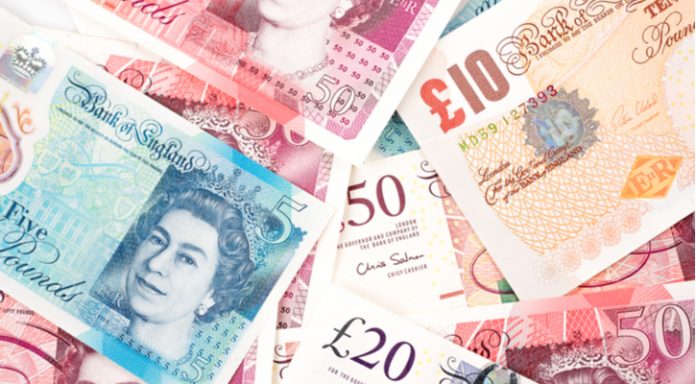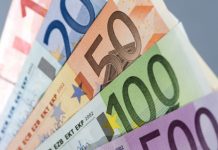Following a weak economic data through the previous week, the pound euro exchange rate has failed to pick up any noticeable momentum. The exchange rate did manage to end the week 0.8% higher, reaching a peak of €1.1498, its highest level in over 2 weeks.
| What do these figures mean? |
|---|
|
When measuring the value of a pair of currencies, one set equals 1 unit and the other shows the current equivalent. As the market moves, the amount will vary from minute to minute. For example, it could be written: 1 GBP = 1.13990 EUR Here, £1 is equivalent to approximately €1.14. This specifically measures the pound’s worth against the euro. If the euro amount increases in this pairing, it’s positive for the pound. Or, if you were looking at it the other way around: 1 EUR = 0.87271 GBP In this example, €1 is equivalent to approximately £0.87. This measures the euro’s worth versus the British pound. If the sterling number gets larger, it’s good news for the euro. |
The pound showed resilience in the previous week in the wake of a sot set of purchasing manager indicator (pmi) data. The numbers showed that the late, heavy snowfall across the UK caused disruption to construction sector activity, which unexpectedly contracted in March. The severe weather also negatively impacted on the dominant service sector, with activity falling to the lowest level since the Brexit referendum.
Hopes of an interest rate rise in May by the Bank of England remained despite the weak data. Market participants are still hopeful that this data will not have thrown the central bank off the idea of a hike. As a result, the pound has increased across the week, albeit marginally.
| Why do raised interest rates boost a currency’s value? |
|---|
| Interest rates are key to understanding exchange rate movements. Those who have large sums of money to invest want the highest return on their investments. Higher interest rate environments tend to offer higher yields. So, if the interest rate or at least the interest rate expectation of a country is relatively higher compared to another, then it attracts more foreign capital investment. Large corporations and investors need local currency to invest. More local currency used then boosts the demand of that currency, pushing the value higher. |
This week sees a relatively light UK economic calendar once again. Market participants could focus on the appearance by two BoE policy makers, who could give more insight as to the probability of the May rate hike going ahead.
Lacklustre Eurozone Data Weighs on Euro
An unimpressive batch of eurozone data also kept the euro out of favour across the previous week. Sector activity data, as measured by the purchasing managers index (PMI) were also soft for the bloc.
On Friday the Retail PMI added to growing evidence that the eurozone economy is losing some of the momentum which boosted the economy in the previous year. This year economic data from the eurozone and Germany has been consistently weaker, giving investors reason to become more cautious over the state to the economy for the bloc.
| Why does poor economic data drag on a country’s currency? |
|---|
| Slowing economic indicators point to a slowing economy. Weak economies have weaker currencies because institutions look to reduce investments in countries where growth prospects are low and then transfer money to countries with higher growth prospects. These institutions sell out of their investment and the local currency, thus increasing supply of the currency and pushing down the money’s worth. So, when a country or region has poor economic news, the value of the currency tends to fall. |
Given the signs of slowing momentum, investors will be keen to hear what European Central Bank (ECB) President Mario Draghi says when he gives a speech on Wednesday. Draghi has a tendency to be fairly conservative and following another week of disappointing data, he has the potential to be very conservative. This would push back hopes of an interest rate rise and weigh on the euro.
|
This article was initially published on TransferWise.com from the same author. The content at Currency Live is the sole opinion of the authors and in no way reflects the views of TransferWise Inc. |





